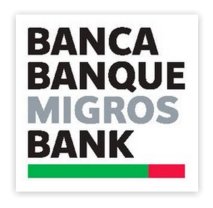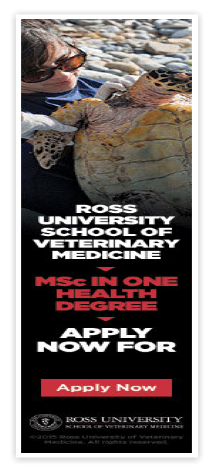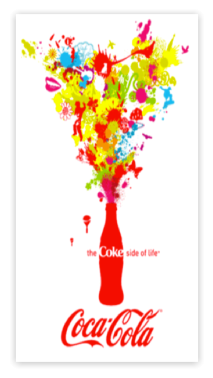About Switzerland
If you’re looking to study abroad in a true education powerhouse, then you may well decide to study in Switzerland. Switzerland was born in 1291, as the Swiss Confederacy, fist consisted of only three canosns (Uri, Schwyz and Unterwalden) of what is now central Switzerland. It is one of today’s longest standing democracies. By 1815 the confederacy had expanded until it encompassed what is present-day Switzerland. Since 1848, the Swiss Confederation has been a federal state of relatively autonomous cantons, some of which have a history of confederacy that goes back more than 700 years. Switzerland has thus a long history of neutrality, direct democracy, and federalism. Switzerland is also home to many of the world’s largest family fortunes and celebrities. It’s politically stability makes it a very safe and attractive country particularly also due to its excellent and highly acclaimed legal system. Switzerland has 8 million inhabitants spread between four official languages. Most of the population speaks German, followed by French, Italian, and Romansh (an ancient derivate of Latin). Switzerland is peaceful and orderly: trains run on time, the locals tend to be rather reserved but friendly, and schools provide quality education. Switzerland is one of the wealthiest and most productive countries in the world.









Swiss Excellence
Switzerland is politically neutral and most renowned worldwide for its high quality standards in many sectors, such as education, science & technology, pharmaceuticals, and international finance. Switzerland acknowledges the importance of sustainable growth in education and research. In order to keep its competitive edge in the ever-evolving global economy, Switzerland places great emphasis on maintaining its recognition as a world class centre of excellence in education, research and innovation. Fostering competition, furthering quality, and encouraging open-mindedness in all fields of studies is Switzerland’s way of staying ahead of the curve. At the same time, Switzerland is part of the global community and maintains a worldwide network of co-operations and partnerships in education and science, providing ample opportunity to its newly graduated students. No country in Europe registers as many patents nor wins as many Nobel Prizes pro capita as Switzerland. Ranking among the world’s top 15 largest economies, and host to more than 20 fortune 500 companies, Switzerland has all the key factors needed to boast its excellence.Situation
Surrounded by other great continental cultures (Austria, France, Germany and Italy), its central position and control of the Alpine passes have made Switzerland a classic transit region. Switzerland is within driving distance from some very famous European capital cities such as Rome, Paris, Amsterdam, Madrid, Prague, Stockholm and Vienna to name a few. Located in the Alps, Switzerland is situated in the heart of Europe, but not part of Europe.Schengen Agreement
Although Switzerland is not a member state of the European Union, it signed the Schengen Agreement, which provides you with the opportunity to travel around Europe without the need for additional visas.International Organisations
Switzerland is a member of many international organisations, including the United Nations (UN), the World Trade Organization (WTO), Organisation for Economic Cooperation and Development (OECD), European Free Trade Association (EFTA), Council of Europe (CE), Organization for Security and Cooperation in Europe (OSCE), International Atomic Energy Agency (IAEA), the International Monetary Fund (IMF), the World Bank (WB), and INTELSAT. Its central bank is a member of the Bank for International Settlements (BIS), based in Basel. Although Switzerland is surrounded by nations which are all members of the European Union (EU), the swiss rejected membership and structured their economic participation within the EU through other free trade agreements.Non-Governmental Organisations (NGOs)
According to different sources there are between 170 and 300 NGOs with their headquarters or local offices in Switzerland. Since they are subject to common law and do not have to be included in the commercial register, it is in practice impossible to draw up a complete list. Some NGOs are very large and are often active in a great variety of industries. These non- governmental organizations also serve as advisers to the United Nations. Since they are subject to common law and do not have to be included in the commercial register, it is in practice impossible to draw up a complete list.Founding Member of
Switzerland is also a founding member of the Organization for Economic Cooperation and Development (OECD) and of the European Free Trade Association (EFTA). Switzerland has been accepted as a founding member of the Asian Infrastructure Investment Bank (AIIB). It is one of the first European countries to be admitted.Currency
The currency used in Switzerland is the Swiss Franc (CHF), which is unique to Switzerland and Liechtenstein. Usually, in bigger cities or large international stores, Euros are accepted too. However, the change will be returned in CHF. Credit cards are accepted in most shops and restaurants.Cost of Living
The cost of living in Switzerland is comparable to other big European cities. In most areas of Switzerland, the average cost of living is less expensive than Paris or London, for example, although certain products, specifically food, is, on average, more expensive than elsewhere in Europe. On a very rough estimate, the monthly living expenses are situated between CHF2800.00 and CHF5000.00 (rent, groceries, electricity, internet, compulsory insurances, and public transport costs). These estimates can vary depending on location and lifestyle. • Housing: between CHF800.00 and CHF2900.00 per month, depending essentially on the size of the apartment and whether it is furnished or not. • Electricity and Internet / TV: between CHF60.00 and CHF250.00 per month, depending on electricity consumption and Internet / TV contract. • Insurance costs (Health & Accident (compulsory in Switzerland) / Third-party liability insurance / Household insurance / Insurance against the effects caused by fire and / or natural disaster): between CHF1200.00 and CHF4000.00 per year, depending on where you live within Switzerland, your age, your gender, your status (student or other), the member’s portion, whether you opt for basic insurance plans or more comprehensive ones, and finally the insurance company. • TV and radio reception tax (payable per household, and as soon as you have at least one computer (portable or desktop) in the household: at least CHF170.00 per month, maximum CHF280.00. • Food: approx. CHF1000.00 per month, if you cook yourself. • Toiletry items and some recreational / entertainment costs: approx. CHF500.00 per month • Transport costs (public transport, locally): rough estimate CHF150.00 per month. The above works out at between CHF2780.00 and CHF5415.00 per month.Housing
In some cases, Educational Institutions provide housing to their students. But in most cases students are expected to find their own housing or accommodation. The saturated Swiss rental market in major cities means competition for Swiss rental properties is fierce and that you need to act fast if you wish to not only find an apartment, but also obtain it. Entering a rental agreement in Switzerland usually requires a 3 months in advance paid deposit equal to the amount required for 3 months of rent. Additionally, the rent for the first month of occupancy is payable in advance. A furnished studio apartment with kitchen and bathroom facilities typically rents start from CHF1000.- per month.Health Insurance
Switzerland takes health care very seriously. As soon as you are in Switzerland for a period exceeding three months, health and accident insurance become compulsory. The upside to this is that such insurance guarantees access to quality medical care services and treatments. Students from countries that provide international health coverage may be exempt from taking out health and accident insurance in Switzerland. Other students may be exempt if they have such insurance coverage in their home country, provided the Swiss authorities accept the international or foreign insurance. In either of the above two cases, proof of insurance will have to be provided to the Swiss health & accident insurance control body, where the case will be examined and decided upon Students coming from outside Switzerland may check with the Swiss Embassy/Consulate closest to their place of residence as to whether their local health and accident insurance cover, which they might already have, is accepted in Switzerland.Third-Party Liability Insurance
Although these insurances are not compulsory in the true sense of the word, most Real Estate agencies will not allocate housing to any party without third-party liability and household coverage. The Third-Party Liability Insurance covers the cost resulting from accidental damage to third party’s goods (excluding car accidents). It also covers financial liabilities which might result from accidental bodily harm (accidental injury to a third party – excluding bodily harm caused in a car accident). Household insurance covers loss of or damage to personal belongings as a result of theft or burglary.16 Facts About Switzerland
1 . Switzerland's climate is not all about snowy mountains - there's no excessive heat, cold or humidity, and varies according to region. In the north, the climate is moderate, with cold winters and warm summers; temperatures drop in the mountainous east; the west has a mild climate; while in the south it's so warm that palm trees line the shore of Lake Lugano. As a guide, expect daytime temperatures from 18–28°C (65–85°F) during July and August, in January and February -2–7°C (28–45°F) and in spring and autumn/fall 8–15°C (46–59°F). 2 . Switzerland has one of the lowest crime rates of all industrialised countries - despite having liberal gun laws (2.3–4.5 million guns in a population of 8 million). In 2010, there were only 0.5 gun murders per 100,000 people compared to 5 per 100,000 in the US. 3 . Foreigners account for around 23 percent of the population - however, in February 2014, Swiss voters narrowly passed through a controversial anti-immigration initiative. It aims to impose limits on the number of foreigners allowed into Switzerland and may signal an end to the country’s free movement accord with the European Union. However, international criticism means it may have difficulties in implementation. 4 . People marry relatively late in Switzerland - men at 31.8 years and women at 29.5 years. The divorce rate is around 43 percent. 5 . The average number of children per woman is around 1.5. 6 . In 2013, around 79 percent of the population aged 15 to 64 had a paid job. 7 . The Swiss are an educated population - in 2013, 86 per cent of adults aged 25–64 had the equivalent of a high school diploma. 8 . Once married, many women do not work - childcare is not readily available, children come home from school for lunch, shops close at 6pm, and in 2013, voters rejected an amendment which would make it easier for parents to combine work and family. 9 . Living space per person is generous - the 2000 census showed the average figure to be 44 sqm (474 sq ft). 1 0 . The Swiss enjoy a leisurely drink - in 2012, the Swiss downed 56.5 litres of beer and 36 litres of wine per person. A lot of the latter is homegrown – only about 2 percent of Swiss wine leaves the country. 1 1 . Switzerland is widely recognised as an international research centre - with the private and public sector strongly promoting science and technology. 1 2 . Switzerland's economy is based on highly skilled workers - in specialist areas such as microtechnology, hi-tech, biotechnology, pharmaceuticals, as well as banking and insurance. 1 3 . Switzerland is the best place in the world to be born - according to the Economist Intelligence Unit's (EIU) 2013 Quality of Life Index, a survey which takes 11 statistically significant factors into account, e.g. how happy people say they are, crime levels, trust in public institutions, climate, employment, gender equality, quality of family life and material well-being. 1 4 . Chocolate is a major Swiss export - just 18 Swiss chocolate companies made 172,376 tonnes of chocolate in 2012. 1 5 . More than half of Swiss domestic electricity is produced by 556 hydroelectric power plants - some 19 million gigawatt hours a year. Hydropower is the country's most important renewable energy. 1 6 . CERN (the European Organisation for Nuclear Research) is the world's largest particle physics laboratory - based in Geneva and straddling the Swiss/French border. Physicists won the 2013 Nobel prize in physics for their work on the theory of the Higgs boson, one of the building blocks of the universe, which was finally discovered at CERN's Large Hadron Collider in 2012.
Administration Links
Travel Links
Useful Links

Chemin des Bruyères 5
•
CH-1007 Lausanne
•
Switzerland
Tel: +41 (0) 21 616 00 11
•
•
Email: info@sieps.ch



Home
About Us
About Switzerland
Why study in Switzerland?
Private Education in Switzerland
About Housing & Accommodation
Passports & Visas
Study Permit Procedure
Important Numbers in Switzerland
Frequently Asked Questions (FAQ)
Why SIEPS?
Educational Services
Housing Services
Guarantor Services
Administrative Services
Contact Us
Housing and Accommodation in Switzerland
Private Schools & Universities in Switzerland
Educational Programs offered by Private Schools & Universities in Switzerland
Accreditation Agencies Worldwide
Degrees offered by Swiss Private Schools & Universities
Affiliation Bodies associated with Swiss Private Schools & Universities












































